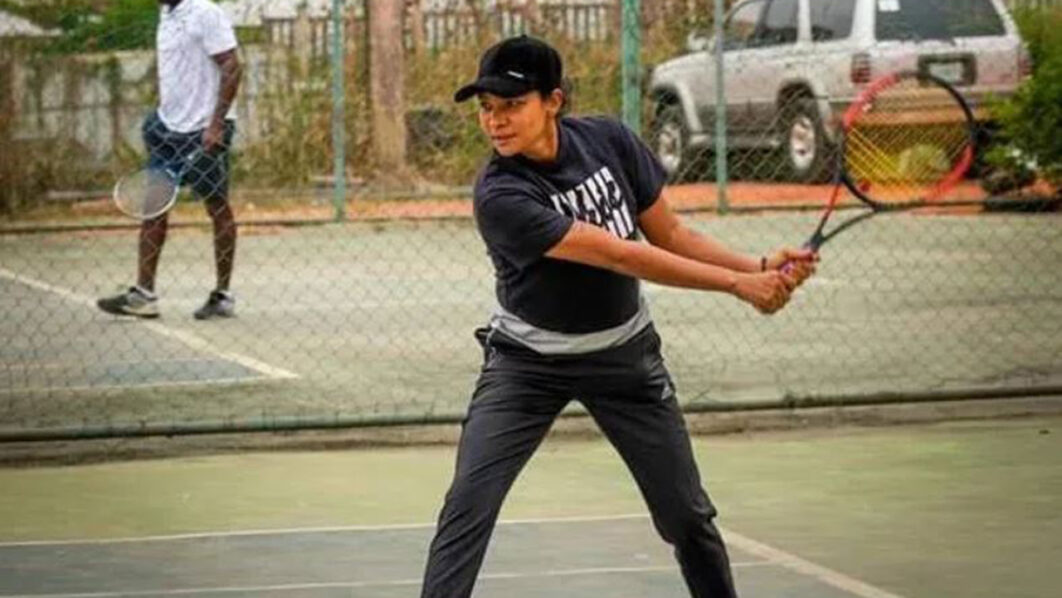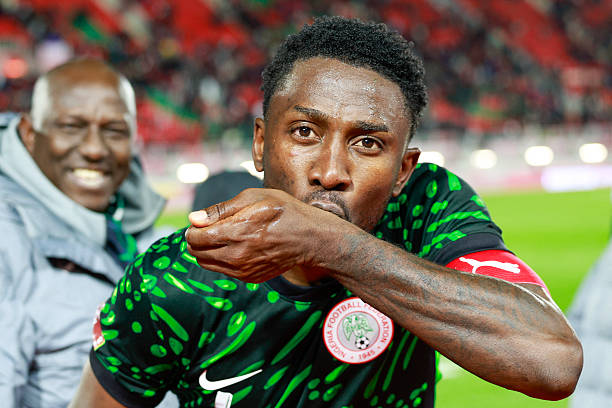
The rising tide of depression among retired sportsmen is becoming concerning. With causative factors ranging from loss of fame, popularity and income, average educational status, unsatisfactory business investments, failure to make alternative plans for post-sports life, and marriage breakups among others, psychological and mental health challenges spike easily if professional help is not sought promptly. CHRISTIAN OKPARA reports that stakeholders want athletes to seek help promptly if matters go south, and also learn new skills to stay afloat. They also cautioned governments against sitting hands akimbo while stars of yesteryear slip into despondency and ultimately succumb to death.
Robert Enke was in line to be Germany’s number-one goalkeeper at the 2010 World Cup. Coming after many years of playing second fiddle to the immaculate Oliver Khan and Jens Lehman, Enke was among the players in the rebuilt German team, which also had a young Manuel Neuer, aiming to stake their claims to the World Cup trophy, which they last won in 1990.
However, on the night of November 10, 2009, at the age of 32, Enke died by rail suicide, standing in front of a regional express train at a level crossing in Eilvese, Neustadt am Rübenberge.
Police confirmed a suicide note was discovered but would not publicise its details. Enke’s demise shook the whole world, prompting some stakeholders to call for more work in the pursuit of solutions to the growing number of depressed sportsmen.
Three years after Enke’s unfortunate demise, Wales Manager, Garry Speed, was found dead in his home, again, through suicide.The 42-year-old manager, who was credited with igniting the resurgence of Welsh football, did not show any sign of depression or facing any issues. This, again, raised questions on the causes of depression among sportsmen and the issues associated with it.
Early this year, a former national tennis champion, Tanya Okpalla, was found roaming the streets of Awka, Anambra State, apparently suffering from depression and unable to help herself.
Not many people believed that Okpalla, from a fairly well-to-do background, with a Belarussian mother, would fall into the situation that she found herself in January.
Okpalla was a lucky case because many retired Nigerian sportspersons have died unnoticed in obscurity from depression in post-sports life. One such case is former international goalkeeper, Raymond King, who played for Shooting Stars Football Club of Ibadan, and the defunct Abiola Babes of Abeokuta in the 1980s and early 1990s.
King, a flamboyant goalkeeper in his days, was said to have slid into alcoholism and felt neglected by the society that once adored him. The late Rashidi Yekini is regarded as one of the greatest footballers ever to play the game in Africa.
“Gangling goals father” as Yekini was fondly called by fans, still holds the record of the highest goals scored for the senior national football team, the Super Eagles, 12 years after he passed on.
But while most of Yekini’s colleagues fell into depression because of poverty and inability to maintain the type of lifestyle that they were used to while still active, Yekini was very rich but could not safely transition into the everyday way of living after his active days.
As his situation degenerated, he became a recluse, locked himself in his Ibadan mansion, and only went out occasionally to exercise and pray in his neighbourhood mosque.
Unfortunately for Yekini, this change in character was misunderstood by his kith and kin, who felt that he had lost his senses, and decided to whisk him away to an unknown destination, where he eventually died.
Towards the unfortunate end of his life, Yekini doled out his money and some of his property to random acquaintances, an action that alarmed members of his family.
Many have argued that if his family knew that Yekini was depressed and needed help, they would have treated his case differently, and perhaps he would still be alive today.
A former Super Eagles Coach, Christian Chukwu, was luckier. In 2019, Chukwu, the first Nigerian to lift the African Cup of Nations was reported to be distressed and needing help to take care of some debilitating ailments that came as a result of the exertions he put his body through in his active days. Chukwu survived the ailment following the support of billionaire businessman, Femi Otedola, who reportedly spent over N36 million to treat the legend, in London.
Another Super Eagles star, Wilson Oruma, was rescued from depression by the Nigeria Football Federation (NFF), and some humanitarian bodies when he was duped of over N1 billion by some people posing as clergymen.
These conmen, who posed as investors, lured the former Marseilles of France midfielder into selling his houses in France and emptying his bank account to invest in a phantom oil business.
Oruma’s case would have been different if he had good investment consultants and/or had adequate knowledge of how things work in the business world.
Factors that trigger unsafe transition from spotlight to life outside stardom
AT the peak of their sporting glory, nothing beats the vacationing millionaire lifestyle adopted by most elite athletes. And while this lasts, most of them are not prepared for the severe psychological and mental health challenges that come with life after sports.
Managing a safe transition to life outside stardom has, therefore, become a major albatross that hangs over athletes, who once savoured the klieg lights and enjoyed rock star status owing to their sweltering performances.
While the challenges experienced by a number of these former athletes have made national headlines, many other sports stars of yesteryears are suffering in silence away from the world that once held them in high esteem; they are men and women afflicted by the wear and tear of sporting disciplines that demanded so much from their minds and bodies.
With no money to take care of themselves upon retirement, these icons find themselves at their wits’ end, depressed and helpless. Depression, according to experts, is one of the major ailments that sportsmen face after retirement, especially those who are so much attached to their sport, and who failed to make alternative plans for lives on retirement.
In an article entitled: “Retired Athlete Depression and Adjusting to Life After Sport,” Kindbridge Behavioural Health, an outfit that specialises in the treatment of mental and behavioural health disorders experienced by athletes, said that sport can be an exciting and extremely rewarding vocation, but the expression “the flame that burns twice as bright burns half as long,” aptly describes how it ends for many of those involved.
“Some can transition into life’s second act without a hitch, but others struggle with the departure from competition, fandom, and other activities that keep dopamine firing in rapid succession. Compromised mental health ensues for a significant number of the latter, with research finding that depression rates in former athletes are as high as 39 per cent.
More concerning is the fact that related suicide rates are two to four times higher for former male athletes than the general male population.” In Nigeria, the problem is compounded by the lack of education of athletes such that when they retire from the sport, most of them “are stranded with nowhere to go and no skill or profession to fall back on.”
Dr Sadiq Abdullahi, an adjunct professor at Florida International University and Miami Dade College, United States, said that depression is most profound among elite athletes who have competed as professional athletes, and who have emotional and physical stress on the body and mind.
He said that there are also other factors such as environmental, societal, and family-oriented stress as well, adding that the psychological and mental aspect of depression in retired athletes is the most challenging.
“Financial challenges and coping with life sports also contribute to depression. Non-governmental organisations such as the JOE Foundation for Diabetes based in Cross River State are now making plans to address the needs of athletes suffering from hypertension, high blood pressure, and diabetes.
“Finally, factors including a loss in fame and popularity, personality and acceptance, breakup in marriage, and lost income can provoke psychological issues in retired athletes especially as they age.
“Many athletes who have served the country admirably may be wasting in abject poverty and with dire health challenges as a result,” he stated. According to Abdullahi, former sports ministers like Solomon Dalung, Sunday Dare and now John Enoh have attempted to start an “Athletes Welfare” programme, which lacks structure and funding.
The former African tennis champion and Olympian said that serious psychological stress caused by life after sport is perhaps the biggest cause of depression among retired athletes.
“Different stressors emanating from the society are putting pressure on retired athletes, as well as economic and political challenges. For example, loss of winning edge, loss of wages, cost of living, and lack of government support.”
For the Head of Medical and Anti-Doping Commission of the Athletics Federation of Nigeria (AFN), Prof. Ken Anugweje, depression is not the exclusive preserve of retired athletes.
The academic explained that depression among active athletes is also prevalent among active sports persons because of failure to meet performance goals, which results in self-doubt and low self-esteem; lack of adequate financial support; excessive media pressure; material demands from family members; recurrent injuries and in the case of female athletes, sexual harassment.
The University of Port Harcourt (UNIPORT) professor of Sports Science said that the society could help prevent mental health issues in athletes by fair and more objective criticisms, setting realistic performance standards, and providing substantial psychological support for them.
Giving his perspective on the issue, sports analyst, Sabinus Ikewuaku, said that most athletes who are battling mental health issues are those with little or no education and those who lack other skills to fall back on when they retire from sports.
According to him: “In Europe and other developed countries, athletes are schooled in other professions while they are still in active service. That is why you see them going into different professions when they retire.
“Some Nigerian footballers, who played in Europe benefited from this education, which prepares them for life outside active sports. “If you check the English Premiership, most of the match commentators and television analysts are retired footballers, who can fall into sports journalism because their clubs tutored them on that. Such things do not exist in Nigeria, and that is why players get distressed a few years after retirement.
“Many are not psychologically prepared for the loneliness that comes with retirement. An athlete who is used to crowded stadiums and adulation, who suddenly finds himself out of the limelight, may find it difficult to adjust to life outside stardom if he is not psychologically prepared for such existence.
“Nigeria is such a country that if you are no longer delivering the goods, you are easily forgotten. The shock is usually difficult for some of these athletes to absorb, hence they fall into depression.”
In summarising factors that trigger depression in athletes, which include physical, psychological, and social influences, a medical practitioner and sports administrator, Dr Kweku Tandoh, further explained that physical injuries can lead to long recovery periods, preventing athletes from training or competing, which may also cause a loss of identity, purpose, and isolation, ultimately leading to depression.
He said: “Athletes often face immense pressure to perform at high levels. Fear of failure, pressure from coaches, fans, or family, and the stress of competition can contribute to anxiety and depression.
“Excessive training without sufficient rest can lead to burnout, physical exhaustion, and emotional stress, potentially resulting in depressive symptoms.
“The transition out of sports, whether due to injury or retirement, can lead to a loss of identity, structure, and purpose, contributing to depression,” the former executive chairman of the Lagos State Sports Commission said.
Tandoh, who is now the Chief Operating Officer of the Africa Table Tennis Federation (ATTF), said that athletes in sports that emphasise appearance or weight, such as gymnastics or bodybuilding may struggle with body image issues, potentially leading to eating disorders and depression, “just as those in individual sports or those who train away from home may experience loneliness and isolation, which can contribute to mental health struggles.”
The Secretary General of the Local Organising Committee (LOC) of the 2025 National Sports Festival (Gateway Games) said that some athletes turn to alcohol or drugs to cope with stress, pain, or performance pressure, which can worsen depression. He added that athletes, like anyone else, may have a genetic predisposition to depression, which could be triggered by external factors.
“In sports culture, mental health is often stigmatised, and athletes may feel pressure to hide their struggles, which can prevent them from seeking help.
“Chronic physical and emotional exhaustion due to continuous pressure, training, and competition can also lead to mental fatigue and depression.”
Stemming rise in psychological and mental health challenges among serving retired athletes
ABDULLAHI, the Executive Director of Tennis Vision 2030, a project set up by tennis stakeholders to revive the sport in the country is of the view that both society and the can play pivotal roles in stemming the rise in depression among athletes.
“The President Bola Ahmed Tinubu administration through the Minister of Sports, John Owan Enoh, certainly could put in place a machinery to address the needs of retired athletes. State governments too should help by providing welfare incentive packages to athletes that have represented them. The private sector could also provide medical assistance the way that JOE Foundation is taking the lead.”
While national sports federations should constitute the first responder, he emphasised that athletes themselves should also seek help and stay educated on the causes of depression.”
Even though Anugweje believes that it is more difficult to “curb depression among retired athletes, especially as welfare support groups are not usual in Nigeria, and psychotherapy is not a common treatment modality in the country. A trust scheme for retired athletes may help them deal with mental health, as well as physical and financial problems.
“Those without crippling mental health problems and physical injuries can be encouraged to learn new skills as coaches, fitness trainers, and even content creators in information technology,” he said.
Societal support, alternative skills key to warding off depression among athletes
UNIVERSITY teacher, Anugweje is emphatic that since many Nigerian athletes have serious difficulties making the transition from sports to life after sports mainly because of below-average educational status, there is a compelling need for athletes to acquire alternative skills.
“Elite athletes hardly anticipate the consequent loss of identity and fame from being away from the limelight. Besides, many of them who have earned quite substantial incomes in their careers make unsatisfactory business investments or none at all. All these are issues that must be addressed,” he emphasised.
To ameliorate the concerning development, Ikewuaku suggested that the Federal Government, through its different organs, should enact laws that stipulate that clubs and other groups that employ athletes must have educational arms that teach their athlete life-after-sport skills that they can fall back on when they retire.
“I think cricket has a way of absorbing their retired players into the system in different capacities. It also encourages them to go to school and that is why one may say that cases of depression among retired cricketers are very few, or non-existent.
“Some may argue that cricket is an elite sport, but the truth is that the sport has found a way of regulating the growth of its players at every level of the game.”
For Dr Tandoh, addressing factors that predispose athletes to depressive conditions requires the support of coaches, sports psychologists, and medical professionals, as well as, fostering a culture that values mental health as much as physical health.”
The Confederation of African Football (CAF) Head of Safety and Security, Dr Christian Emeruwa, shares Anugweje’s position on how limited education and inability to find employment after retirement from sports constitute a disincentive to former athletes.
He said: “Most athletes are not well educated as many of them started playing sports from a very young age and were carried away within the scope of doing well and the euphoria of the sport itself, and as such didn’t bother to enhance their educational capacity. For such people, it is always difficult to find employment after retirement.”
He said that the fact that most athletes have a lifelong commitment to their sport for which they have trained for many years, living that sport and having nothing else to do after investing their lives in a particular sport, drives some of them to depression.
“Every sport has its health challenges. One example is boxing, which saddles so many boxers with health challenges. Even many footballers have knee problems, which begin to manifest as they grow older. If they don’t have the funds to manage these challenges, it can lead to aggravated depression.
“There are also difficulties in life events. Many times, people forget that these athletes are humans; they consider them as superhumans. Some of them have broken marriages, which throw them into very terrible situations mentally, and from that, they fall into depression because people expect them to still live a certain level of life.
“The athletes themselves have certain expectations and, if for whatever reason their marriages or love lives break up, most of them tend to relapse and fall into depression.
“Another factor that leads athletes to depression, sometimes, is the age of retirement. If a young, active athlete’s career is suddenly cut short by injury, remember that the lifespan of every athlete is very short, the person retires abruptly without any preparation mentally.
Since athletes are also susceptible to mental health issues, which affect normal human beings, Dr Emeruwa explained that research has shown that many of them have chronic stress because of the expectations of the society on them.
“They tend to exhibit withdrawal syndromes. I think Rashidi Yekini had this withdrawal syndrome, as he tried to stay away from society before his demise. Athletes suffering from such conditions try to avoid the spotlight believing that they are no more there. There are also anxiety disorders, which also lead to health issues.
“A couple of them also suffer from process addiction, which is the inability to process the current situation, and as such, get into activities that are not healthy like gambling. This can also lead to serious depression, especially when they gamble away all they have earned in their career.
“Some get into drug addiction because they are looking for a way of escape from the quagmire that they have found themselves.” To help retired athletes cope with the challenges of life after retirement, Emeruwa advocates government intervention by ensuring that professional athletes are pensionable and also contribute to their pensions.
“These exist abroad and most of those who played abroad have pensions from which they get some money every week or every month. This is what the government should do for these athletes.
“Those of them playing for the national teams should also benefit from this kind of pension scheme so that they will have some very good reserve in the future,” he stated.
Emeruwa also advised the government to create subsidised educational opportunities for retired athletes willing to go back to school to help them learn some trade or go into coaching, which helps them to continue in the sport.
“There is also a need to have recognised counselling centres and hotlines where these athletes can easily call in to seek help. I know there are many good counsellors in the country, who could be recruited to offer their services to retired athletes.
“Finally, the government should encourage athletes to take to positive hobbies…A lot of them on retirement turn their backs on these sports, while some continue. But being in a hobby related to their sport keeps them in that environment and away from the stress of everyday living.”
Sport can be an exciting and extremely rewarding vocation, but the expression “the flame that burns twice as bright burns half as long,” aptly describes how it ends for many of those involved. Some can transition into life’s second act without a hitch, but others struggle with the departure from competition, fandom, and other activities that keep dopamine firing in rapid succession. Compromised mental health ensues for a significant number of the latter, with research finding that depression rates in former athletes are as high as 39 per cent






